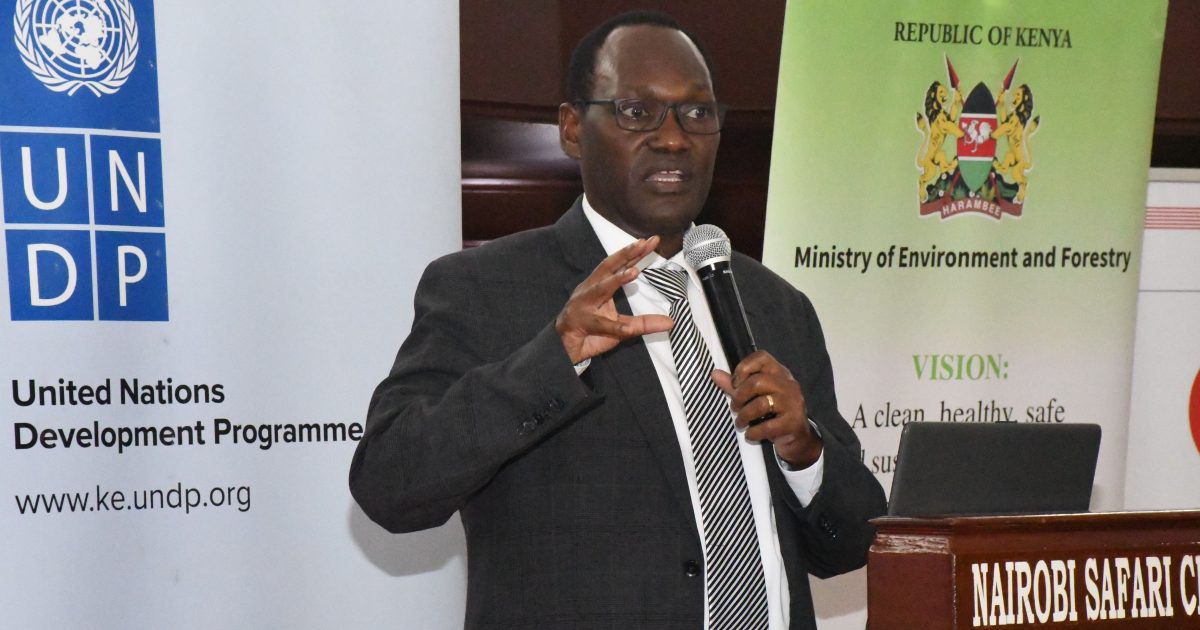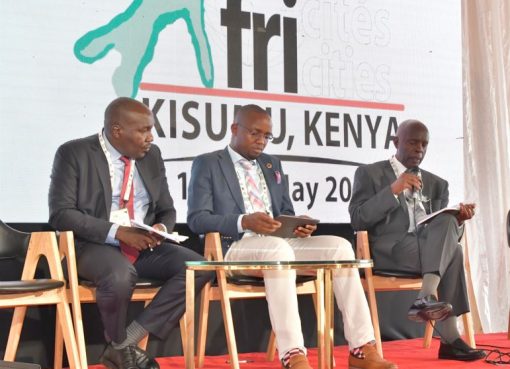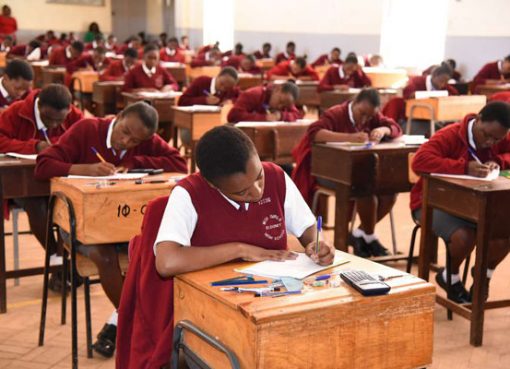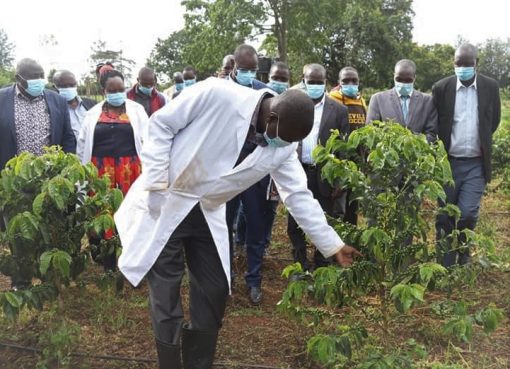Kenya has received USD 2,680,898 million from the Government of Japan towards the ‘Forest and Land Restoration Action for Kenya’s Nationally Determined Contribution NDC (FLaRAK) project.
The project, anchored under the United Nations Development Program (UNDP’s) Climate Promise, aims at implementing robust forest restoration and protection activities, which will put forth green recovery in Kenya’s Nationally Determined Contribution (NDC) implementation plans, while building resilience to climate change.
Speaking at a Nairobi Hotel during the FLaRAK launch, Environment and Forestry Principal Secretary (PS), Dr. Chris Kiptoo, said the catalytic project targets three important ecosystems of Kakamega Forest, Kaptagat and Magadi-Suswa.
He noted that the three ecosystems play an important role in the Country’s economy and provide critical services to sustain human life.
Kiptoo thanked the Government of Japan for their continued support to Kenya over the years and more so in the forest sector, saying the support has been broad, including on issues related to institutional strengthening, policy, tree breeding, and Arid and Semi-Arid Lands (ASAL), forestry development.
“I thank UNDP for being a partner of choice on climate change, and congratulate them on mobilizing resources of USD 41.7 million for its climate promise across ten countries, Kenya included,” said the PS.
He noted that Kenya has made significant strides in enhancing its 10 percent tree cover, which has been due to a robust policy and legal framework, including the Updated Nationally Determined Contribution that aims at reducing Kenya’s emissions by 32 percent by 2030.
Dr. Kiptoo highlighted that Kenya has set ambitious Land Degradation Neutrality, targets to achieve no net loss of healthy ecosystems by 2030 and restore almost 5.1 million hectares of land.
While Kenya commits to utilize 21 percent of its domestic resources, equivalent to USD3.75 billion for the implementation of its NDC, Kiptoo emphasized that it will require 79 percent, equivalent to USD 14 billion from international support in the form of finance, investment, technology development and transfer, and capacity building.
The PS mentioned that the environment and forestry sectors are the foundation upon which Kenya’s growing economy is anchored supporting key primary sectors such as manufacturing, energy, health, and agriculture while empowering rural livelihoods and providing environmental and ecosystem services.
Japan Ambassador to Kenya, Ken Okinawa Robert, appreciated the governments’ effort to combat climate change, urging Kenya to learn from the FLaRAK project and do much better in forestry protection.
“I am indeed happy that Kenya is training on how to promote and protect forestry. Let us continue funding to protect our already existing forests, to ensure they are well kept instead of cutting trees,” said Okaniwa.
The UNDP Resident Representative, Walid Badawi, celebrated Kenya for her efforts towards a greener and cleaner Kenya, which is spurring massive reforestation and land restoration efforts nationally, even as the country seeks to bounce back from the effects of Covid-19 pandemic.
Badawi highlighted that the linkage between the FlaRAK project and ‘Tree Growing and Sustainable Forestry Finance Management Programme’ will support resource mobilization to help Kenya meet and even surpass her forestry and land restoration targets.
“I assure you that UNDP will continue to support such efforts to sustain resilient forest ecosystems that benefit local economies, protect biodiversity and address the root causes of climate change,” said Badawi.
By Catherine Muindi





